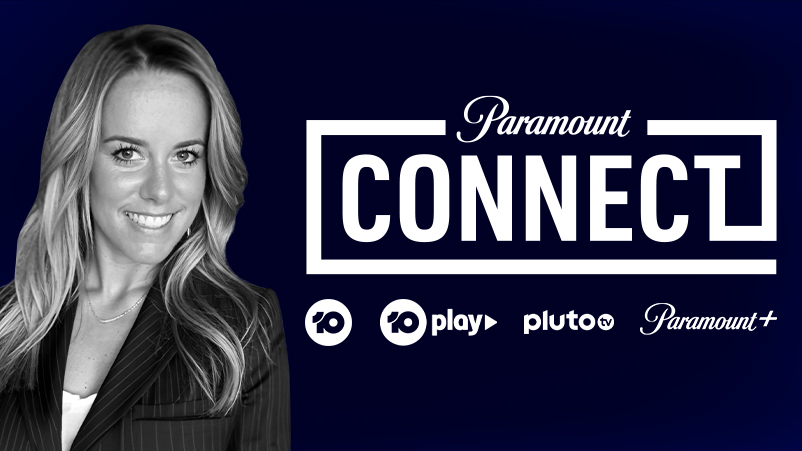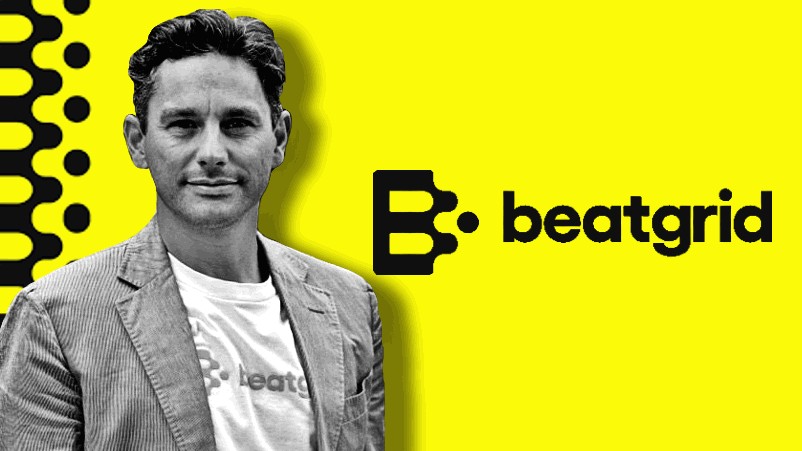Your digital ad targeting is suffering and it’s about to get worse: what Facebook’s earnings call means for brands
Brands are already losing digital targeting capability. But they don’t even know it, because they are not measuring it properly. Facebook’s third quarter results are a mirror image of the market – and the social media giant is telling marketers in no uncertain terms that privacy changes are about to bite hard.
Hold on tight
Bear with me: When I was 12, my two older brothers and I went to stay on my uncle’s farm in France for the summer. It was epic. We rode mopeds around the fields, played army games from sunrise to sunset and just had endless amounts of fun in the French outdoors.
For me, the tree rope swing was the highlight. My brothers and I would run, grab the rope and swing over this huge hill, mostly for the danger. The problem was, I didn’t have the hand strength to hold on to the rope so ended up falling two metres onto the hard floor each time. To make things worse, my brothers would place a pile of branches on my landing spot, which they told me were to cushion the blow, but it was actually because it made it even funnier for them to see me land more painfully.
After 10-15 falls into the spiky pile, something wonderful happened. I stopped getting winded and crying. I lost my fear and out of nowhere, some new found hand strength carried me round to the other side of the tree. I made it! They quickly lost interest, but I limped away a more resilient, stronger 12-year-old covered in scratches (and maybe silently sporting a cracked rib). I like to think that those falls toughened me up.
I recalled this memory ahead of Facebook’s earnings call this week. Investors around the world were standing back, watching Facebook ‘on the rope swing’ in anticipation of a fall, with heavy speculation that Apple’s iOS 14.5 changes to mobile tracking data back in April may have already hit Facebook’s revenue like a branch to the buttocks.
Judging by the 5 per cent-plus drop in FB’s stock price in the lead up, there was a recognised risk of missed earnings targets. Except, despite everything, Facebook didn’t. The share price rocketed, like clockwork, on the quarter.
Make no mistake; this is the start of the clean up of digital advertising and Facebook is telling you it’s about to get way harder.
Facebook’s Q3 results: canary in the coal mine
Facebook’s Q3 revenue of $29.01 billion (+35 per cent YOY) was slightly shy of some Wall St estimates, but its daily active users were up 6 per per cent and earnings per share of $3.22 was higher than expected. Compared to Snap, which recorded a 24 per cent drop in share price after reporting a $300m shortfall in revenue due Apple’s iOS changes, Facebook came away relatively unscratched, ribs intact. FB still grew, profitably, as always, defending its status as an apex predator of advertising investments – even after global outages, a whistleblower scandal, heavy user attrition to Tik Tok, and the measurement kneecapping from Apple.
Facebook publicly warned us all in July that the iOS changes would likely have a “significant impact in the third quarter” and that the changes will end up “hurting small businesses and publishers” that rely on FB advertising. For now, these look to be more of a Q4 problem – although for all it’s warnings and complaints, Facebook is still predicting bumper last quarter growth.
In terms of headwinds, e-commerce is slowing as the world opens up and supply chain issues affect platforms and their advertisers – let’s not forget the complications of Covid. Facebook is now focusing on “retooling teams to make serving young adults their north star”, recognition that the continued growth and engagement of its user base is under threat – the TikTok problem.
The commercial reality that Facebook has now declared though is that its margins are about to get squeezed, thanks to expense growth, strategic investments and its friends at Apple: “We expect fourth quarter 2021 total revenue to be in a range of $31.5 billion to $34 billion.” But while that looks like strong revenue growth, profit may be a different story: “Our outlook reflects the significant uncertainty we face in the fourth quarter in light of continued headwinds from Apple's iOS 14 changes, and macroeconomic and Covid-related factors.”
While Google has its own set of challenges, it is not likely to see quite such impacts from Apple. Alphabet is likely to have sensational results off the back of a stellar year from Google search, which could amount to year-over-year growth of about 45 per cent. Given the nature of its ad ecosystem, removing IDFA is a mere “scratch” for Google so it could be a prime candidate for re-diverted Facebook budgets if iOS damages come to fruition.
All up, the Q3 results are telling us that Apple will definitely hurt Facebook’s business by removing its access to their users’ data. It’s just that the commercial impacts will take a little more time to hit than we realised.
If an apex profit machine of advertising is calling out margin pressures – your marketing capital is probably going to be hit by the same headwinds.
Ad tech privacy updates: no toothless tiger
One could be forgiven for looking at Facebook’s Q3 results and concluding that if Facebook, the very business that should have been affected by iOS 14.5, was not affected much then why would anyone else be? We keep hearing about privacy changes like IDFA and third party cookie deprecation but maybe they aren’t the massive issues we all thought they were.
Wrong – it’s just starting. Facebook CEO Sheryl Sandberg summed it up perfectly: “Overall, if it wasn’t for Apple’s iOS14 changes, we would have seen positive quarter-over-quarter revenue growth.”
Make no mistake; this is the start of the clean up of digital advertising and Facebook is telling you it’s about to get way harder. There is a potential scenario at play in which small businesses and enterprise-grade advertisers alike still haven’t quantified the impact on their ad spend on Facebook too, so there is a ‘lag’ effect between when they realise and reduce their spend.
Sandberg also made clear the two main specific impacts she fears will unfold:
- Accuracy of FB ads targeting decreased
- Measuring outcomes became more difficult
The COO of a near trillion dollar business just explained that without third party data, your ad targeting and measurement inevitably suffers. Brands should heed the warning.
If anyone asks “what you are doing about the metaverse”, feel free to gently plant your face into your palm and feel the sense of disappointment in whoever uttered those words. Focus on clean tag management and privacy-first first party data collection and storage.
What advertisers should heed from Facebook’s results
A recommended shortlist of things for marketers to consider:
1) Stop and revise your ad spend measurement model as a priority: If my Facebook ad effectiveness did drop, how would I know? If I wasn’t investing enough in Facebook ads, how would I know? No matter your answers to these questions, you will ultimately arrive at the conclusion that your measurement models will probably need upgrading. Today, you may want to address your spend in FB, but tomorrow you should be assessing all other channels in the mix. No matter what, I would drastically limit use of last touch attribution due to its bias and statistical flaws and look to build a robust econometric or Media Mix Model (MMM). This will also help to understand the impact of non-conversion based activities like content and videos.
2) Go back to basics: If you can successfully re-target people who have been to your site or expressed an interest in your products and you have suppressed conversions (or people who won’t buy from you) from your campaigns, that is a good outcome. If you’re correctly using lookalikes and first party audiences too then you’re doing pretty well. However, most advertisers haven’t got this right – including the use of the correct conversion pixels and first party data integrations .
3) Mobile video: More than 60 per cent of Facebook’s video revenue now comes from “mobile-first video, meaning videos that are shot vertically or are under 15 seconds”. Be on the look out for ‘reels’ ads on Instagram ‘with automatic placement and new creative formats’. Stop creating two minute videos in landscape view by default and get the most out of this activity (across all other relevant video channels!).
4) Lead gen: Continue to get the most out of Facebook results. Use the conversion leads optimisation goal for higher quality lead generation, as well as the conversions API. If you need to scale back or alter your social ads buying at some point, at least you can leverage FB’s intended technical patterns for driving more tangible results.
5) Martech upgrades: If anyone asks “what you are doing about the metaverse”, feel free to gently plant your face into your palm and feel the sense of disappointment in whoever uttered those words. Focus on clean tag management and privacy-first first party data collection and storage. Think “CDP” or “clean room” and not “crypto social tokens”.
6) Use Facebook as an example for how this will play out across the industry: Use the Q4 forecasts and slowed growth callouts to show your business that a) we are early and there is time to prepare for more changes coming our way and b) if an apex profit machine of advertising is calling out margin pressures – your marketing capital is probably going to be hit by the same headwinds.
In a nutshell
Facebook had a better Q3 result than expected, but you don’t even need to read between the lines. Facebook is telling us that ad targeting and measurement is now more challenging – and the same thing will happen everywhere at some point, not just with Facebook ads.
Protect your shareholders’ capital (i.e. the money you spend on marketing) by first getting measurement right, second the basics of targeting tactics and third, the appropriate martech tools.
If there’s anything that the French rope swing taught me, it’s that falling on the hard, branch-covered floor a few times is nowhere near as bad as never swinging in the first place.
And in marketing, a thicker hide is no bad thing.


